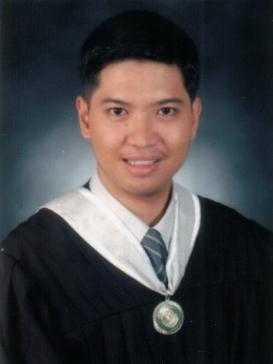Rizaliana collection is book printer’s prized treasure - Sir Gus' new news article
Sir Gus Vibal is in the news again but for a good reason. Well done sir.
----------------------------------------------------------------------------------------------------------------------------------------
147th BIRTH ANNIVERSARY
Rizaliana collection is book printer’s prized treasure
MANILA, Philippines—Gaspar Vibal’s face lit up when he showed a five-inch thick compilation of articles either written by, for, or about Dr. Jose Rizal.
The Rizaliana—made thicker by dried up moisture, discolored by time and its edges eaten by termites—was Vibal’s latest treasure. “It was all covered with dust and termites,” Vibal mused proudly about his latest find—in a forgotten nook of a bookshop.
“My mother said that I should not bring this up here because my books will be eaten up by the termites as well,” he told the Philippine Daily Inquirer at the Vibal Foundation, the social arm of the 50-year-old publishing house founded by his father Hilarion and mother Esther.
The compilation has been placed inside a transparent and airtight plastic bag, Vibal said, “to kill the termites.”
However, no termite will eat up the material when Vibal and his staff digitize the articles and upload them on filipinana.net—the foundation’s “fully featured digital library and research portal.”
Sharing book
“I just wanted to share books. I collect old books. I tend to take them from oblivion,” Vibal said while showing off a modest sample of his wide collection of filipiniana, or printed works on Philippine history and culture.
Vibal picked up a volume of Ricardo Galang’s first Philippine Encyclopedia, published in 1939 until he ran out of funds.
“There must have been only 1,000 copies of the 20 volumes,” he said.
He has one of the early copies of the 1935 Constitution, its pages already yellow-brown with age as well as historian Esteban Ocampo’s 40-year-old Rizaliana collection which he rescued from the bugs at the Heritage Art Center in Cubao, Quezon City.
Vibal also has copies of first editions of Rizal’s Noli Me Tangere and El Filibusterismo. His page on wikipilipinas.org shows that Vibal bought them from the Old Books Fair in Madrid in 2006. He wouldn’t say how much they went for. “It might put the prized items in danger,” the site said.
‘She thought I was mad’
Vibal first thought of making such historical resources available for free via the foundation’s websites filipiniana.net and wikipilipinas.org.
“I told my mother about it in 2005. She thought I was mad,” Vibal said. “My mother thought it was crazy to give away free books. How does that sit well with our business model? Our business model is you can’t get this book until you give me your payment.”
He said he told her this was no longer in vogue.
Vibal said that all the books uploaded on filipiniana.net are already 50 years old or older.
“As long as the book is already public domain, let’s put it there. Give it an audience,” Vibal said.
Filipiniana.net went online in September 2006 with a modest collection of books and documents in English, Spanish and Filipino. Vibal and an associate, Jaime Marco, initiated the portal. They were later joined by Spanish historian Carlos Madrid.
Comprehensive collection
“Today, it has one of the widest and most comprehensive collection of hard-to-find Filipiniana books and documents categorized under history, geography, culture, government, and society,” said Kristine Mandigma, editorial director of the foundation.
The website also features photographs, maps, paintings and illustrations, the Virtual Philippine Revolutionary Records, 100 Nobelang Tagalog, Virtual Blair and Robertson, and the Master Union Bibliography of the Philippines, 100 Pinoy Komik Serials, Premio Zobel.org, and Archivo General de Filipinas.
“We want to create informed Filipino netizens,” Vibal said.
“Right now, when you go to the top ten sites visited by Filipinos you see gaming sites. That’s why we have these (filipiniana.net, Filipino wikipedia site wikipilipinas.org and the forthcoming e-turo.org),” he added.
The ‘in’ thing
Mandigma said some of Vibal’s partners were Jeroen Hellingman, the Dutch director of Project Gutenberg Philippines, the world’s first and biggest provider of free Philippine electronic books; Isaac Donoso, a young Spanish historian living in Manila; Dr. Lloyd Espiritu, former dean of the De La Salle College of Computer Studies; University of the Philippines-based historian Grace Mateo; and Georgina Padilla Zobel of Premio Zobel.
Vibal worked for two decades in the Philippine and American publishing industries. In 1983 Vibal moved to New York to study at the New York University Book and Magazine Publishing Institute.
He has a bachelor’s degree in business economics from the University of the Philippines.
Wacky
“Free information. Free books. That’s the in thing. Free is the new economy,” Vibal said quoting Wired magazine editor in chief Chris Andersen.
“They think I’m mad. All the other publishers think I’m wacky,” Vibal said.


<< Home